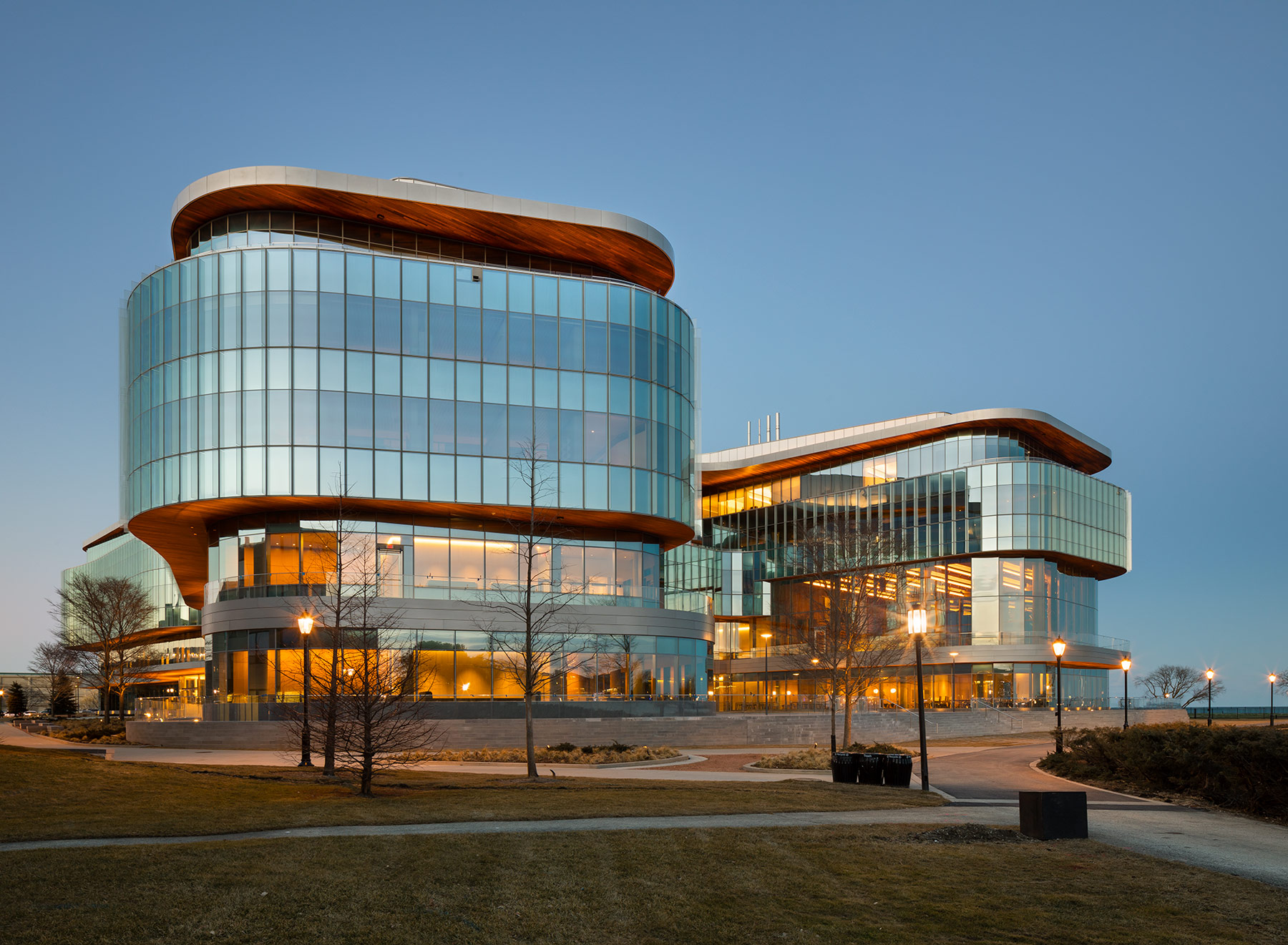Harvard, Wharton Re-Claim Top Spots in Financial Times 2020 Ranking

The Financial Times 2020 ranking of the world’s best full-time MBA programs sees Harvard Business School re-claiming the top spot, with the University of Pennsylvania Wharton School moving back to second place.
Continue reading…HEC Paris Jumps to 1st in 2019 Financial Times Executive MBA Ranking

Leaping up from the sixth overall spot in the 2019 Financial Times Executive MBA ranking, Jouy-en-Josas, France’s HEC Paris claimed the top spot in the publication’s newest release.
Continue reading…Chicago Booth, Harvard Top The Economist’s 2019 Full-Time MBA Ranking

The Economist 2019 full-time MBA ranking is finally out, with the University of Chicago Booth School of Business—once again—cracking the top spot. This marks the second consecutive year the school stayed on the top of the list.
Continue reading…Financial Times 2019 Executive Education Rankings: What You Need to Know

The Financial Times just released its 2019 Executive Education rankings, and the top-ranked schools are right where you’d expect. For the fifth year in a row, IESE Business School ranked first for customized Executive Education, followed by Duke Corporate Education in second and IMD in third. For open Executive Education, IMD ranked first for the eighth year in a row with INSEAD rounding out the fifth position.
However, beyond that, there were some surprises for the top five schools on each list with five programs rising sharply. Continue reading…
UVA, Oxford, CEIBS Rise in All-New Financial Times 2019 Ranking

The latest Financial Times MBA ranking is officially out, with several international schools rising closer and closer to the top in 2019.
Northwestern Kellogg & HKUST Lead the 2018 FT EMBA Rankings

Where should you go to school for your Executive MBA? Good question. While, the answer may not be quite so simple, an official EMBA ranking can help.
There are many things you should consider before choosing the best EMBA program for you including average graduation salary, industry employment, research interests, and more. However, a good place to start is with the 18th edition of the Financial Times Global Executive MBA Ranking. This ranking collects key data from business schools and alumni around the world to come up with a list of the top 100 best programs worldwide.
We’ve collated some of the critical data from the ranking study to give you insight into what’s going on in the world of EMBA programs.
EMBA Graduates Choose Industry and Manufacturing
Compared to full-time MBAs, EMBA graduates are much more likely to work in certain industries like manufacturing. In fact, three times as many EMBAs are employed in industry or manufacturing compared to their full-time peers. The figure accounts for 17 percent of all graduates. In comparison, only 10 percent of EMBA graduates are in consulting roles. And they’re less likely to work in finance, too.
EMBAs Earn More Money
EMBA graduates can also expect to earn more money than full-time MBAs after graduation. The average salary for an EMBA is $220,000 whereas an MBA alumnus can expect to make $146,000. It’s a large gap that’s similar to the salary gap between an MBA and a MiM graduate ($146,000 VS $67,000). Keep in mind, however, that the typical Executive MBA student is significantly older and often has more work experience.
In contrast, full-time MBAs win when it comes to salary boosts before and after earning the degree. MBA alumni generally increase their salary by 107 percent while EMBAs only experience a 59 percent boost.
Top 10 EMBA Programs
This year, the top ten EMBA programs, according to the Financial TImes, includes four joint programs. In fact, these were the top four programs in the world ranking well for post-EMBA salary, alumni leadership positions, and work experience. Each of these programs offer excellent networking opportunities thanks to different cohorts across different campuses, connecting students around the world.
Here’s how all the rankings stacked up.
1. Northwestern Kellogg & HKUST
This joint program ranks first for the third year in a row, and it’s the ninth time in 12 years that it has headed the list—the other three times it ranked second. The program is known for having the highest average salary three years post-graduation, $507,000—$140,000 more than the second-highest salary. It’s also known for having half of its alumni as company leaders three years post-graduation.

No EMBA has dominated the annual FT ranking quite like the Northwestern Kellogg & HKUST join program, earning top billing once again for 2018.
2. HEC Paris, LSE, & NYU Stern
This trium global EMBA program ranks second in 2018, up from fifth the previous year. The program is ranked first in work experience, languages, and international course experience rank. It also ranks highly in average salary ($347,970) with an expected 60 percent salary increase three years post-EMBA.
3. Tsinghua University & INSEAD
For the second year in a row, the Tsinghua-INSEAD dual degree MBA comes in third overall on the FT EMBA ranking. Located in China, Singapore, France, and the UAE, the program is known for its high salary three years post graduation ($365,746), and its high percentage of female students (45 percent).
The rest of the top ten shakes down as follows:
- EMBA—Global Asia: Columbia Business School, HKU, & London Business School
- Ceibs
- HEC Paris
- Washington University Olin Business School
- Shanghai: Jiao Tong University Antai
- IESE Business School
- MIT Sloan School of Management
Surprising Schools
There were quite a few surprises in this year’s EMBA ranking.
- Though HEC Paris has ranked in the top five since 2006 because of its joint program with NYU Stern and LSE, this was the first year the school entered the top ten ranking on its own. The HEC Paris solo EMBA program ranks sixth overall, making it the highest new entrant.
- IESE Business School took home the crown as the top EMBA program for the new criterion corporate social responsibility (CSR).
- The University of Toronto Rotman School of Management EMBA moved up the most places in 2018, rising to 47th place overall—20 places higher.

No school saw a bigger rankings jump than the University of Toronto Rotman School of Management, rising 20 spots in 2018.
FT EMBA Ranking Methodology
To come up with the 2018 EMBA ranking, the Financial Times reached out to a record 139 programs with two online surveys: the first completed by the school and the second by alumni who graduated from programs in 2014. The methodology of the ranking is as follows:
- Alumni were required to provide feedback on salary today, salary increase, career progress, work experience, and aims achieved—accounting for 55 percent of the ranking’s weight.
- Schools provided insight into ten criteria, accounting for 35 percent of the total ranking. Criteria included: gender and international diversity, board members, international program reach, and more.
- Accounting for the final 10 percent of the ranking was the FT research rank, which looks at the number of articles published by a school’s full-time faculty.
And, for the first time ever, this year’s EMBA ranking included a new criterion for corporate social responsibility (CSR). This new criterion took a look at how many of a school’s core courses were dedicated to ethics, social, and environmental issues. Weighting at 3 percent, this criteria replaced the number of Ph.D. graduates per school.
